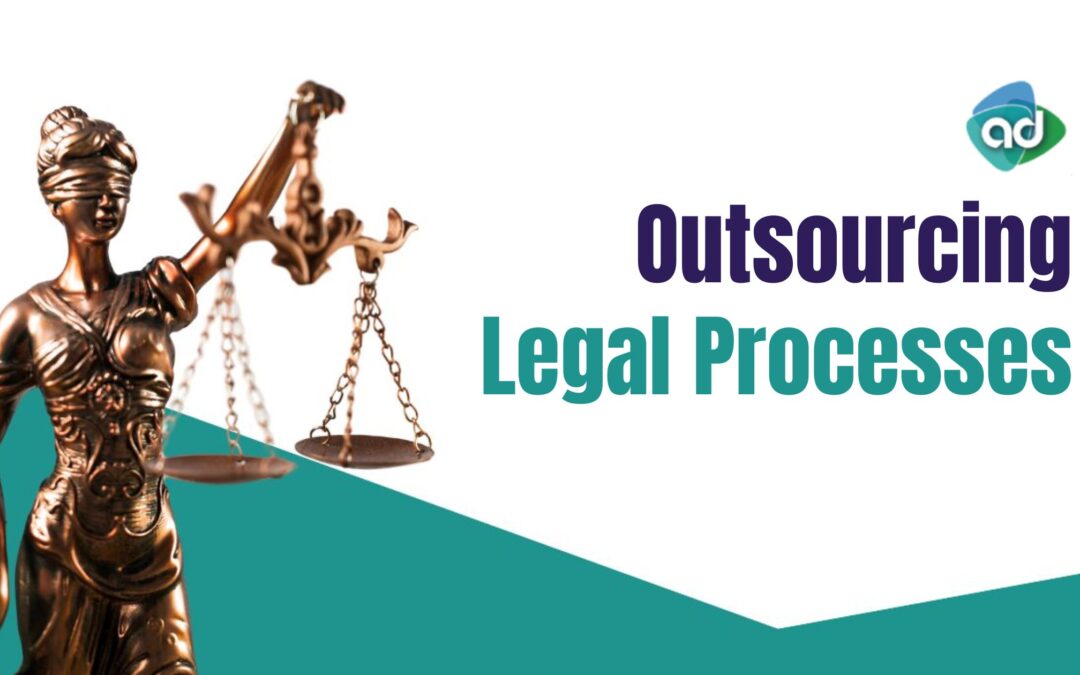Outsourcing has become a common business strategy for modern companies looking for ways to streamline processes, reduce costs, and gain a competitive edge. While this approach was initially used primarily for non-legal services such as IT and customer support, outsourcing legal processes is now gaining popularity. With the increasing complexity of the legal landscape and the need for businesses to focus on core competencies, outsourcing legal processes can be a smart and practical strategy. This blog post will explore the benefits of outsourcing legal processes and why it is a wise choice for modern businesses.
Reduced Cost:
One of the most significant advantages of outsourcing legal processes is cost reduction. Legal services can be expensive, and hiring a team of in-house lawyers and legal staff can be a considerable cost for businesses, especially small and medium-sized ones. By outsourcing, businesses can save on hiring and maintaining a legal team and the overhead expenses of in-house staff, such as office space, equipment, and benefits. Outsourcing also eliminates the need for additional training and professional development costs for legal staff, reducing business expenses.
Access to Expertise:
Outsourcing legal processes offers businesses access to a team of experienced and specialised lawyers who are experts in their respective fields. These professionals have a deep understanding of complex legal matters and can provide efficient and effective solutions for the specific needs of a business. Additionally, outsourcing firms often have a network of legal professionals with diverse backgrounds and expertise, providing businesses access to various legal services and resources. This access to expertise can help modern businesses stay ahead of the curve and make well-informed decisions.
Increased Efficiency:
Outsourcing legal processes can help businesses increase efficiency and productivity. With the legal processes in expert hands, companies can focus on their core operations without the burden of managing legal affairs. Moreover, outsourcing allows for quicker turnaround times and increased flexibility to meet changing business demands. Professional outsourcing firms have streamlined processes and state-of-the-art technology that can help businesses save time and expedite legal matters. This makes businesses more responsive and agile, ultimately improving productivity and profitability.
Risk Management:
Legal matters can be highly complex, and even a small mistake can significantly affect a business. With outsourcing, businesses can mitigate risks by entrusting their legal processes to qualified professionals with experience in handling similar cases. These professionals are well-versed with the latest laws and procedures and have the necessary expertise to navigate potential legal hurdles. They also adhere to strict quality control standards, ensuring the work is error-free and meets regulatory requirements. By outsourcing legal processes, businesses can minimise the risk of legal issues and protect their interests.
Scalability and Flexibility:
Outsourcing legal processes offers businesses the flexibility to match the demand and scale of their operations. This means companies can expand or downsize their legal outsourced teams quickly and efficiently, depending on their needs. When a company grows and requires more legal support, its outsourcing partner can quickly adapt and provide additional resources and support. This agility is particularly crucial for seasonal businesses or those experiencing fluctuating legal workloads. On the other hand, scaling back outsourced legal services can save costs without any long-term commitments if a business faces low demand.
Ensuring Compliance:
Regardless of industry or size, businesses must comply with various laws and regulations, including employment laws, data privacy, and procurement regulations. Staying on top of these legal requirements is crucial for businesses to avoid any legal consequences. Outsourcing legal processes to professionals specialising in compliance can help ensure businesses comply with relevant laws and regulations. These professionals are well-equipped to conduct audits, create and implement compliance policies, and monitor rules to help companies to stay on the right side of the law.
Conclusion:
Outsourcing legal processes is an innovative and practical strategy for modern businesses looking to gain a competitive edge, ensure compliance, and improve efficiency. The cost savings, access to expertise, increased efficiency, risk management, scalability, and flexibility make it a compelling choice for businesses of all sizes. However, it is essential to carefully choose a reliable and experienced outsourcing partner to ensure the best results. By leveraging the expertise of professional outsourcing firms, businesses can focus on their core competencies and drive growth without worrying about legal matters.
